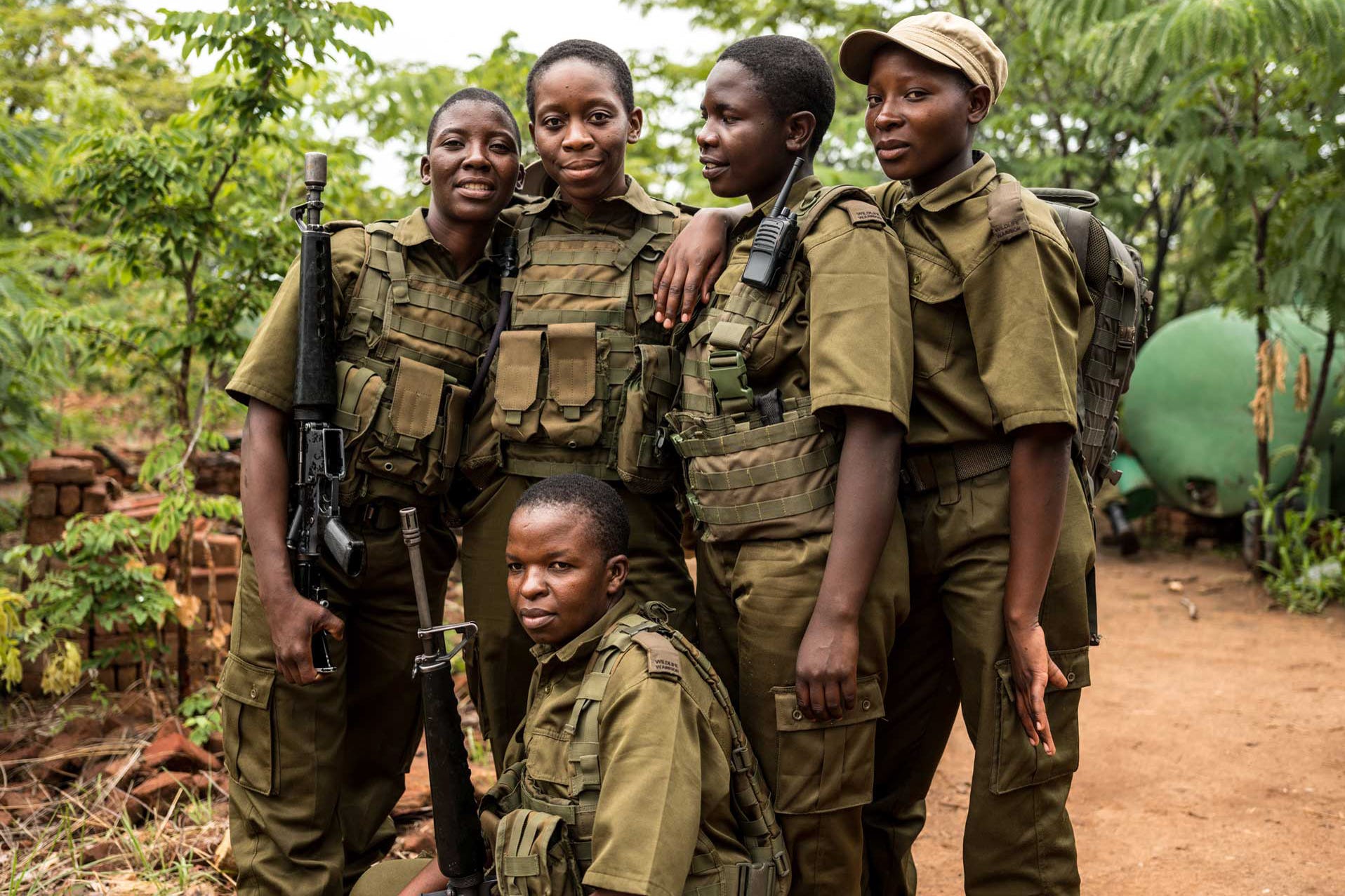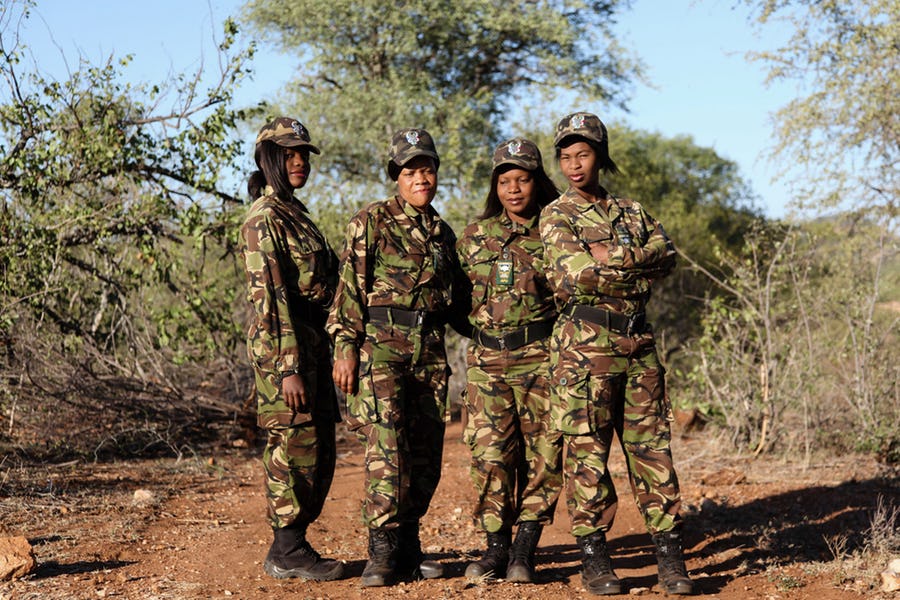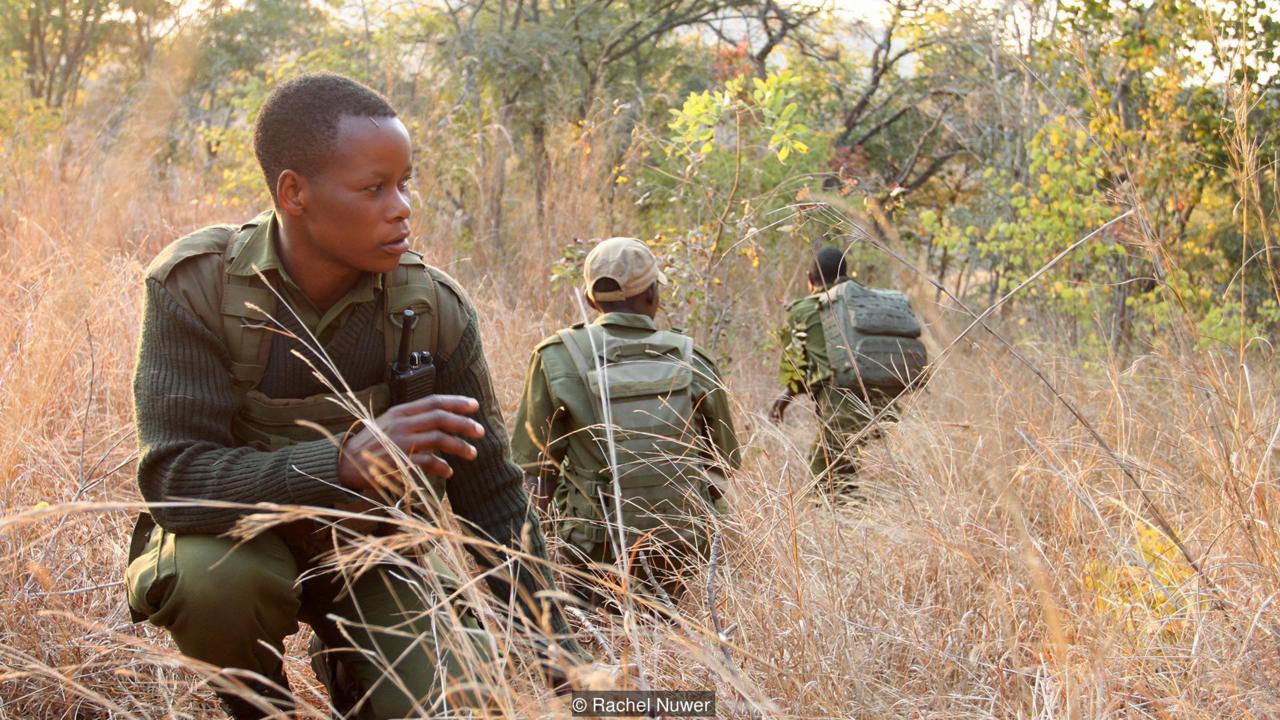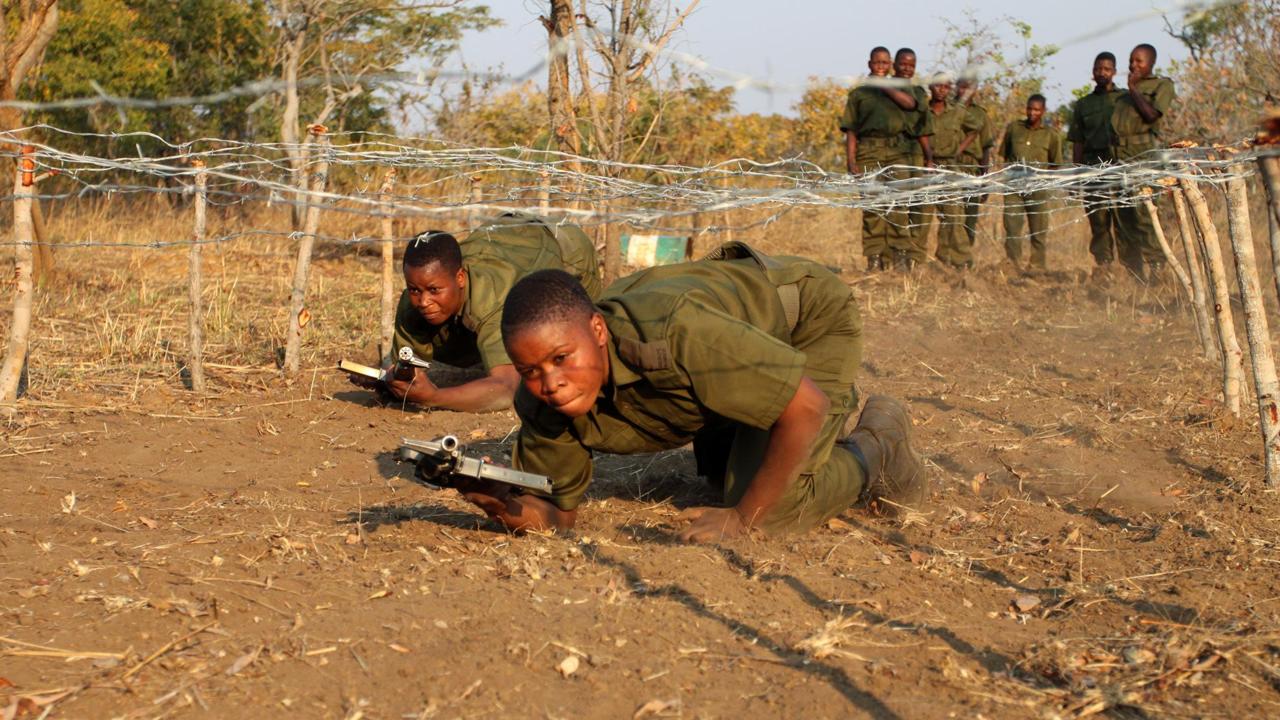The Black Mambas, Akashinga Rangers & Team Lioness
A new force in anti-poaching
The Black Mambas, Akashinga Rangers & Team Lioness
Africas new elite force: armed, all-women anti-poaching units arresting poachers and fighting for a better life.
Two slightly contrasting concepts in anti-poaching (unlike the Akashinga rangers, the Black Mambas and Team Lioness are unarmed) are giving courageous young women an opportunity to play a significant role in conservation.
ABOUT THE BLACK MAMBAS
Craig Spencer is the founder and manager of the Black Mamba Anti-Poaching Unit in South Africa, the continent’s first all-women ranger team. Instead of carrying firearms, Spencer mentions, women rangers should play to their strengths by focusing on community-building and education. “Women are the single biggest untapped resource in Sub-Saharan Africa, but trying to make them into men, I think, is self-destructive,” he says. “We need an armed component, sure, but we need to start moving more and more of our resources into communities, and the best people for that are women.”
Founded in 2013 by Transfrontier Africa NPC, to protect the Olifants West Region of Balule Nature Reserve. Within the first year of operation the Black Mambas were invited to expand into other regions and now protect all boundaries of the 52,000ha Balule Nature Reserve, part of the Greater Kruger National Park.
The teams work to the concept of the “Broken Window” philosophy, striving to make their immediate area of influence the most undesirable, most difficult and least profitable place to poach any species. With a passion for wildlife and rhino conservation, these women are the voice in the community through their conservation work.
The objectives of the Black Mamba project are not only the protection of rhinos through boots on the ground but also through being a role model in their communities. These 32 young women and 1 man want their communities to understand that the benefits are greater through rhino conservation rather than poaching, addressing the social and moral decay that is a product of the rhino poaching within their communities. They are concerned for their children’s sake as the false economy has brought loose morals and narcotics into their communities.Read more at: The Black Mambas.org
ABOUT THE AKASHINGA RANGERS
Founded by a former Special Forces sniper, Damien Mander, the team he leads is thought to be the world’s first all-women ranger unit protecting a nature reserve (Zambezi Valley). Damien sees women’s empowerment as being at the core of the programme, named Akashinga, which means the brave ones. “This is a true empowerment programme,” says Victor Muposhi, a conservation biologist - “because you are dealing with a highly vulnerable and damaged group of young ladies.” Sitting on a rock looking north over one of Africa’s last great wildernesses, Muposhi explains that his early research shows the five-month-old programme is helping change these formerly unemployed single mothers into community leaders.
Like most countries in southern Africa, Zimbabwe uses game management areas around famous national parks such as Victoria Falls or Mana Pools as “buffer zones” to protect the animals. These buffer zones are huge tracts of land much larger than the parks themselves, originally created to benefit the surrounding communities by allowing limited trophy hunting by high-dollar foreign clients such as Walter Palmer, the American dentist who attracted worldwide condemnation after killing Cecil the lion on a hunt in 2015.
There are no fences between the hunting areas, or between the wildlife and the estimated 4 million people living on the borders of these protected lands. Some profits from the hunting have gone to support the communities which live in the wilderness areas designated for trophy hunting – almost 20% of Zimbabwe’s land.
According to Muposhi, these precious ecosystems are now under grave threat due to the collapse of commercial hunting, in part because of a growing ethical backlash. “Cecil the lion marked the birth of the greater debate around the issues of morals and ethics in hunting and whether it is sustainable or not.” Revenues are plummeting and human populations around parks growing. “Five years from now,” says Muposhi, “if we do not have other options, then it will not be viable to save these areas.” Mander was inspired by the story of the Black Mambas, the world’s first female, unarmed anti-poaching unit, who work near South Africa’s Kruger National Park. Having met some of the women on a fundraising trip to New York, where they were giving a talk, he saw the international support and interest they received and thought a similar project in Zimbabwe might be a good way to raise the profile of his own project, the International Anti-Poaching Foundation (IAPF). What transpired went way beyond those modest ambitions. “Thirty-six women started our training, modelled on our special-forces training, and we pushed them hard, much harder than any training we do with men,” he explains from his tented camp at a secret location in the Zambezi Valley. “Only three dropped out. I couldn’t believe it.”Source: Jeff Barbee at The Guardian
ABOUT TEAM LIONESS
Several years ago, as part of his philosophy of giving back, Infinite Safari Adventures founder Alan Feldstein, underwrote the college education of a Maasai warrior, Patrick Papatiti. After graduation Patrick worked for the Kenyan Parliament and recently began running an anti-poaching unit near Amboseli National Park. As part of that initiative, and in a rare occurrence, a unit of female rangers where formed, who have become known as Team Lioness. Recently they were featured in Washington Post. You can read more about them here - January 2021
Source: APTA
GO BACK TO: People on the frontline



